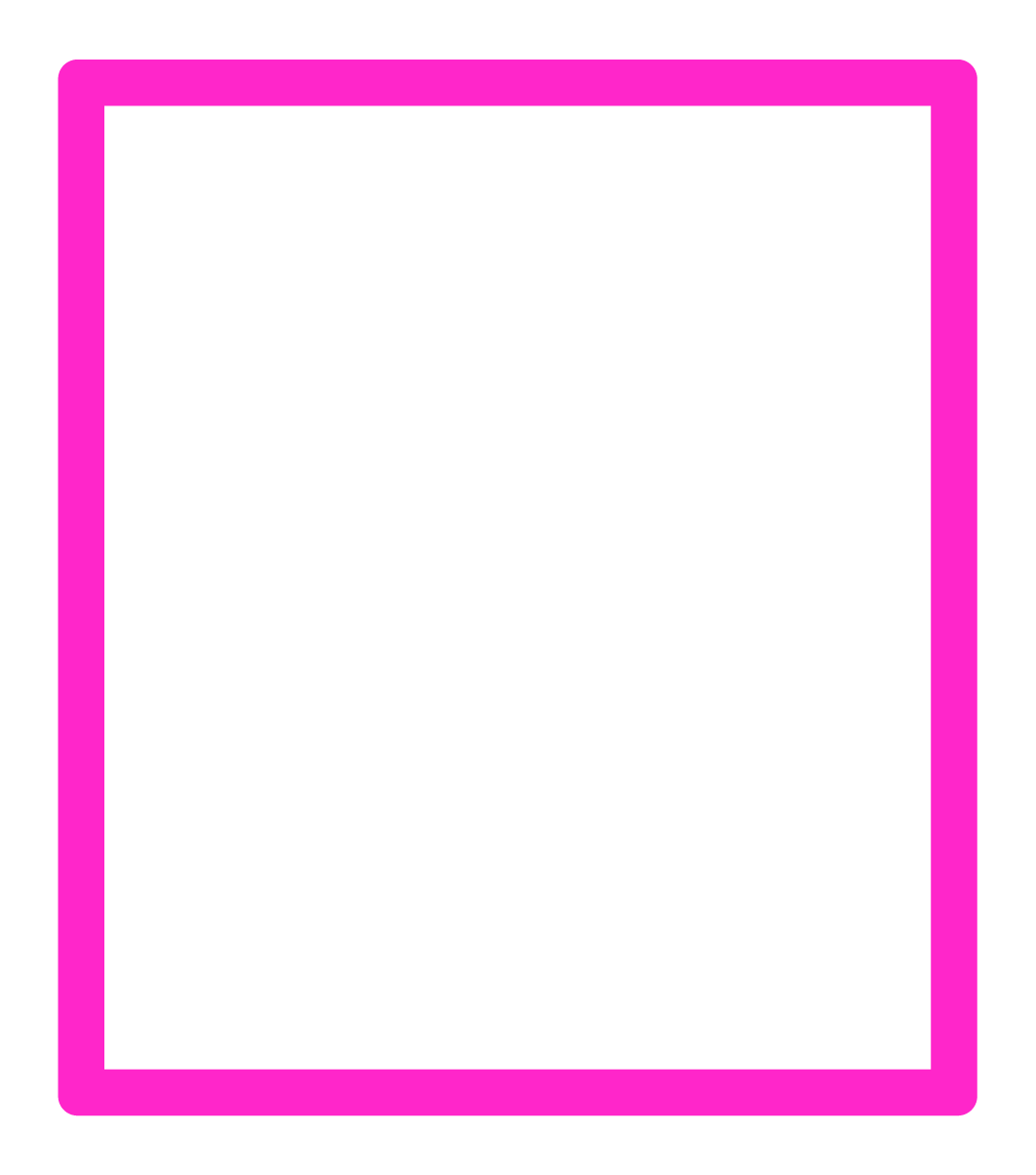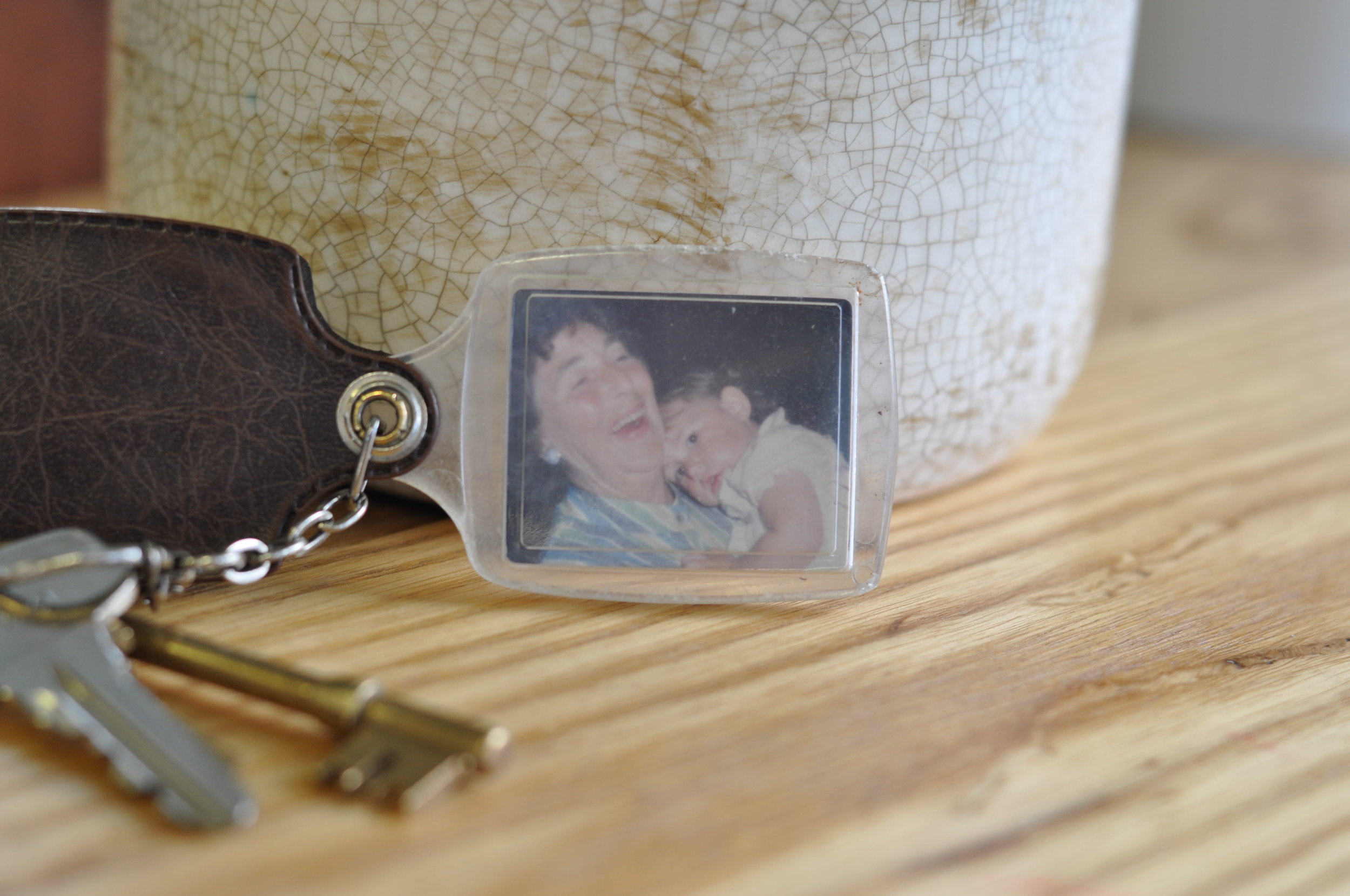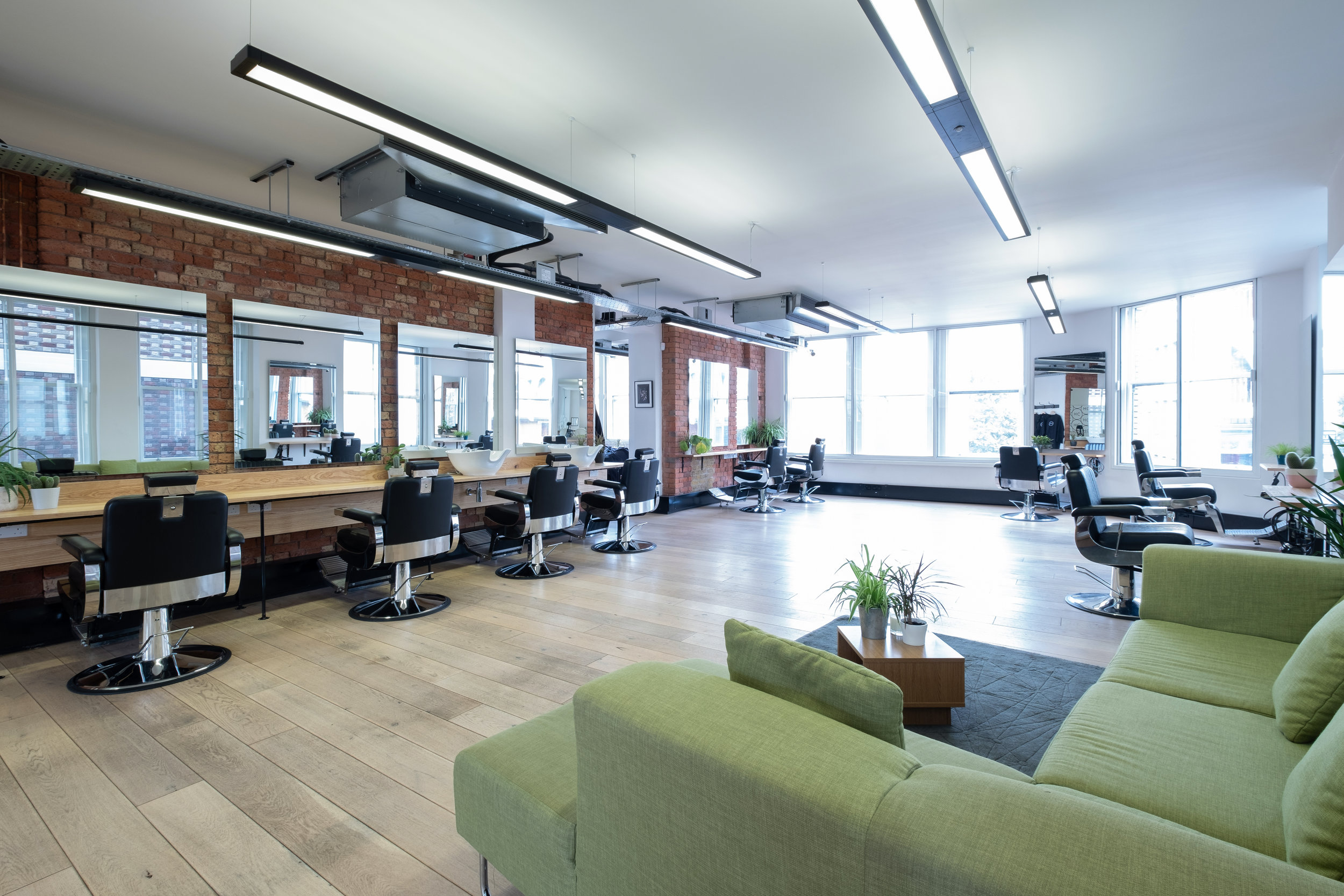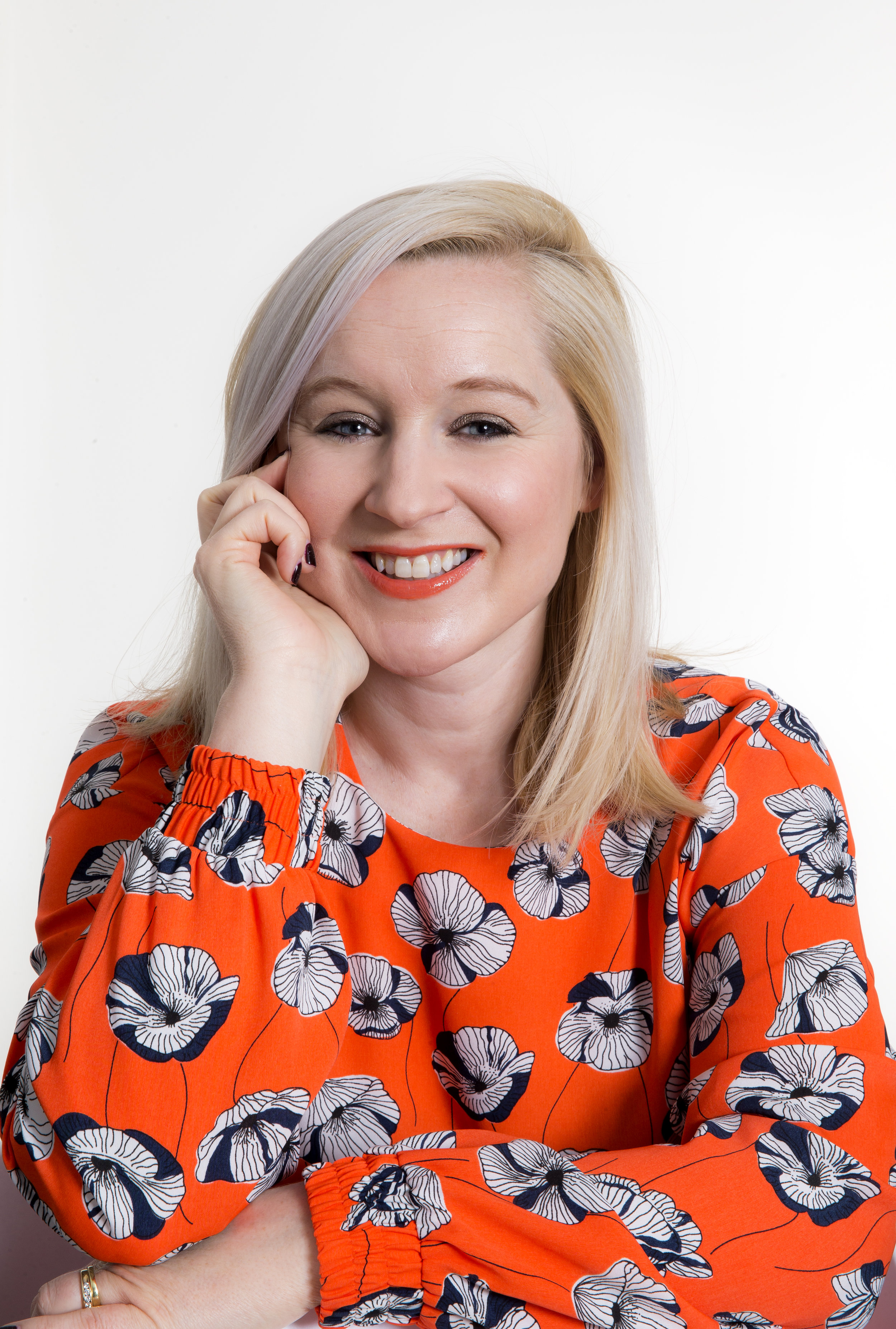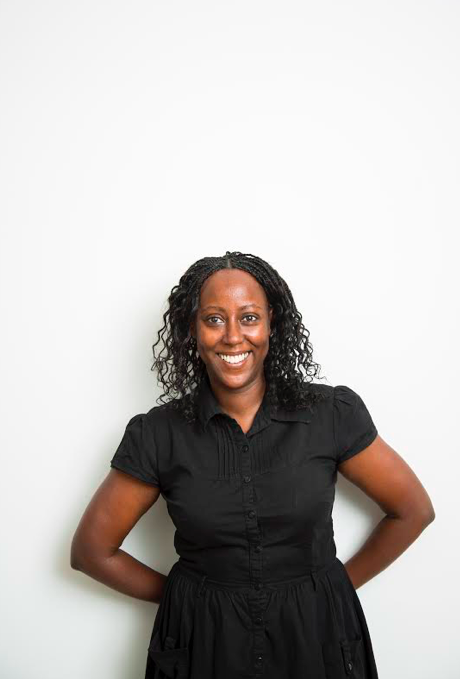The theme of International Men’s Day this year is ‘Positive Role Models’
We wrote a blog post last week that you can find here about why we decided to team up with Mac&Moore and chat to some pretty incredible men about this topic. We’ve been so excited to share the responses we asked to the following three questions and feel as though there were some powerful common themes, despite the participants working in the worlds of sport, education, advertising and beyond which has been both refreshing and encouraging in the midst of all the media misery we’re enduring at the moment. So with no further ado, let’s dive right in!
Phil Bartlett – Managing Director, CDM
- What are the qualities or most important elements of being a positive role model?
Authenticity, consistency and tenacity. People will forgive your (inevitable) weaknesses and failings if they can see you’re sincere about your beliefs and efforts.
- What actions do you think need to be taken to ensure that men can thrive without being restricted by patriarchal structures?
First, it’s down to the individual to take the first step: just let go of all the old bullshit and there’s a real freedom and poise that can come with that. “There’s more courage in truth than there is in pretending to be strong.” But the long game is all about teaching our sons about empathy and the importance, and huge value, of vulnerability in building trust.
- How do you think men can be positive role models for women?
I don’t think women need men to be positive role models for them. I think people need to decide they’re going to be positive role models for other people. Like-minded, forward thinking and open-hearted individuals will always find and support each other. (Find Phil on Twitter and LinkedIn)
Nick Bridge – Founder, Girls are Awesome
- What are the qualities or most important elements of being a positive role model?
I really think just not being a dick helps. I try not to be a dick as much as possible. I’m not always successful because working with people is a dynamic thing and sometimes life is frustrating. Thank goodness we’re not robots and we’re forced to navigate and be diplomatic and empathic. Strategies are great because they forget the people have egos and fears and ambitions and interests. I really think just trying to try to see things from as many different points of view as possible helps. And being large enough to admit to your mistakes, shift perspective and not always have to be right. That’s something I work on every day. I’m not the expert though.
- What actions do you think need to be taken to ensure that men can thrive without being restricted by patriarchal structures?
Wow, big question. I’m not ‘strong’ or unemotional so I can’t speak to those particular traits, but I think somehow showing and experiencing success through failure can go a long way. I also don’t necessarily think that being strong or unemotional needs to be a restriction - we just need more females in all levels of business, government and society, and especially at the top. I also don’t believe in a total revolution either, obvious big things need to happen and the scales need to tip for women in order for dudes to shut the fuck up for a second and stop being protective and mean and greedy. There’s only one way to find out if power corrupts and absolute power corrupts absolutely regardless of gender, or not.
- How do you think men can be positive role models for women?
I really only think about how to be a role model for my kids, how I have to show my son and daughter to be respectful people - and to be honest, there’s so much Girls Are Awesome in our lives at home as well as the studio that I have to try to figure out how to raise my boy amongst this societal shift - if you know what I mean. There’s a lot of positive encouragement for young girls and women right now but we mustn’t forget that might leave the boys to figure it out for themselves, again - and it will be interesting to see how that goes. Not saying it’s not about a shift, and that after thousands of years of oppression that women deserve what’s coming through this movement, but the overall goal is equality. (Find Girls Are Awesome on Instagram)
Chris Wyles – International Rugby Union Player and founder of Wolfpack Lager
Source: Sky Sports
What are the qualities or most important elements of being a positive role model?
I believe the most important element is to lead by example. It's easy to talk the talk but you need to walk the walk.
- What actions do you think need to be taken to ensure that men can thrive without being restricted by patriarchal structures?
In this case it's all about communicating. We need to make sure men feel comfortable to share their thoughts and concerns and open up. This is an important step to allowing men to look for help and guidance rather than internalising emotion.
- How do you think men can be positive role models for women?
It's all about being respectful to people rather than making it about men or woman. If you are respectful and considerate you can be a role model to anyone! (Find Chris on Twitter and Instagram)
Dr. Kerry Featherstone – Lecturer in English and Creative Writing, Loughborough University
Credit: Suzi Corker Photography
Firstly, I have a strange relationship with gender. My first name is asexual, and many people have assumed that I’m female. Mobile phone providers have refused to allow me to change contracts on behalf of Kerry Featherstone. I get asked what my relationship is to the patient when I pick up medication at the pharmacy. And I’m not particularly macho: as a teenager I was beaten up for being gay on more than one occasion (I’m not gay). Should I have made it clear that I wasn’t gay in order to avoid the beating, or would that be tacitly acknowledging that if I had been gay, the beating would be understandable? So, as we know, gender can be a pain in all sorts of ways, petty or horrific.
- What are the qualities or most important elements of being a positive role model?
I think it’s something like a combination of integrity and empathy. In practical terms, be kind to other people. Try to help them to get where they want to go, rather than helping them to be more like you. For me, the ability to be generous with your time and energy is a sign of strength. That’s about empathy. Also, try to live according to standards that you set yourself, and are happy with, regardless of how other people behave towards you. For me, a role model has self-respect that doesn’t rely on the response of other people. In order for it to become a model, you have to do it publicly: show that other people’s behaviour doesn’t diminish your belief in your values. That’s the integrity bit.
- What actions do you think need to be taken to ensure that men can thrive without being restricted by patriarchal structures?
I think you have to be prepared to ask yourself some questions! “Why am I behaving like this?”; “Why do I feel I have to do or say certain things?”; “Why can’t I do or say certain things?” If you start unpacking the reasons for behaving in certain ways, there’s no logic to or need for it. So that might be a sign that you should let it go. That’s personal interrogation, I guess. At societal level, we need to let go of the idea of ‘growing a pair’: it’s ridiculous and harmful.
- How do you think men can be positive role models for women?
By showing respect regardless of gender. I’m fortunate to work in an environment where women have as much expert knowledge as their male colleagues and – as far as I’m concerned – are valued accordingly. That should be true anywhere. If, as a man, you behave differently towards the people around you because of gender, you need to be asking yourself why you’re doing that. Perhaps part of the answer is to accept that, as a man, you can have female role models. I certainly do. (Find Kerry on Twitter and Instagram)
Josh Uwadiae – Founder, WeGym
- What are the qualities or most important elements of being a positive role model?
I think one of the most important elements of being a positive role model is a mixture of vulnerability and optimism. People should be inspired by your optimistic views and actions but equally grounded by the candour at which you articulate the bad and ugly, which complements the good work you’re doing. A good example is the book Shoedog - the autobiography of Phil Knight the Founder of Nike.
- What actions do you think need to be taken to ensure that men can thrive without being restricted by patriarchal structures?
I think men need to be given the liberty to be both macho masculine and feline feminine. Being too manly is judged and vice versa with femininity so I believe the modern man is lost in today’s climate. In terms of action I would first start with spreading awareness to the traditions which have been handed to us as men as we are often acting these out subconsciously... my dad hated talking about my emotions and I found myself growing up similar so it’s about breaking the cycles publically as well as at home!
- How do you think men can be positive role models for women?
I heard a great talk by David Wade where he said, ' we're all sexist, even the good people ' and that really resonated with me. I think I'm a good person and therefore I'm really not sure the specificity of male role models to women in a general/societal setting but I do feel a responsibility to manage my own sexism, bias, discriminative opinions and make other people (including men) aware too. (Find Josh on Twitter and Instagram)
Paul Mellor – Founder, Mellor & Smith
- What are the qualities or most important elements of being a positive role model?
Listening. As the old adage goes "you've got 2 ears and 1 mouth" so shut your mouth and pin your ears back.
Humility. It goes a long fucking way.
Empathy. Having compassion for another person’s life, problems, hopes and dreams is incredibly powerful.
Having a backbone. Displaying the guts to stand for something or someone, especially if that opinion costs you.
Being fucking real. Having the confidence to show weaknesses as well as strengths.
And remember, nobody likes a dickhead.
- What actions do you think need to be taken to ensure that men can thrive without being restricted by patriarchal structures?
Suicide is the biggest killer in men between 20-45. How the fuck did we, as a civilised world, get to the point where the biggest thing killing young men is themselves. It would be laughable if it wasn't so serious. It's definitely connected to society's demand for men to be strong and unemotional. But I reckon it's bigger than that; patriarchal structures don't actually work for anyone apart from the one fella at the top. Equality isn't women superseding men, it's men and women thriving together.
- How do you think men can be positive role models for women?
By calling out bullshit, misogyny and inequality at every opportunity. The people who’ve been to our Take Fucking Risks events know I call out the problems in the advertising industry whenever I can: "Fuck white, male creative directors”. I've got 3 kids at Primary School: 2 daughters and a son. I despair that my daughter’s opportunities will be hindered as they grow up, whereas my son will afforded baked-in privilege. Fuck that shit. It’s time for change. (Find Paul on Instagram)
Matt Boyles – Founder, Fitter You and Wireless Fitness
- What are the qualities or most important elements of being a positive role model?
Always challenging and calling out sexism, bias and privilege. Plus continually challenging my own prejudices and biases and catching myself when this happens, as embarrassing as it might be. This can start on a micro level, ie. with your friends, as well as in the wider field. Carefully thinking about the language I use in real life and online and also ensuring I don't do anything that might be construed in any way as intimidating. Not to mention supporting the women I know in all their endeavours, both personally and professionally.
- What actions do you think need to be taken to ensure that men can thrive without being restricted by patriarchal structures?
Listening to the amazing women in our life as much as possible - really listening. Calling out people who are consciously (and unconsciously) supporting the current toxic structures. Having the awareness to notice and work on when we do fall into the old traps. eg. even though I'm an out gay man, I occasionally find myself hiding or disguising who I am in order to appear more manly or fit in with certain groups and it's not doing anyone any favours. Being more 'masc' or manly doesn't mean you're stronger in any way, it just means you're still subscribing to ridiculously outdated notions that are holding all of us back.
- How do you think men can be positive role models for women?
With the consistency of our language, support and approach. By listening more. By not assuming we know everything. By staying open and grateful to the women in our life and wider circle for everything they've done and will do for us and with us. (Find Matt on Twitter and Instagram)
Luke Sturgeon – Founder, GreySpace
- What are the qualities or most important elements of being a positive role model?
I believe a good role model will frequently find moments to reflect on what they’re doing and whether their actions and opinions can be improved. I enjoy seeking out critical feedback from others and encourage criticality. I’m most happy when someone asks me why I believe x is a good idea versus y.
A) it forces me to articulate my thinking clearly
B) whilst trying to explain I’m also deciding if I agree with my old opinion
C) we can compare and imagine alternatives.
- What actions do you think need to be taken to ensure that men can thrive without being restricted by patriarchal structures?
I think men already thrive in many areas. The challenge here is a broader one of changing gender stereotypes. I’m aware when I’m speaking to mostly male, mostly female, or mixed groups. But the moment someone speaks to me - regardless of gender - I’m listening to a person with a different background, experiences, education and interests to myself. That’s always fascinating and rewarding. Women are underrepresented in many areas of society. Work being an obvious and important one. I believe we need to create more opportunities for underrepresented people to excel. But I also don’t believe someone should be empowered just to fill a diversity agenda, we should see and celebrate the value each person offers on a case-by-case basis.
- How do you think men can be positive role models for women?
I don’t think men should be role models for women specifically. I think someone who’s intelligent, passionate, articulate and interesting can be a positive role model to someone else who’s looking to better some aspect of themselves and grow in new ways. I think people should surround themselves with a diverse set of interesting men and women, younger and older, who will encourage them to challenge their assumptions, develop their own opinions, and take their own action. We all need to support others who are on this journey of growth and self-development. I think most people would be proud to discovered they positively impacted someone else’s life.
Adam Jones – Policy and Advocacy Officer, UK Council for Psychotherapy
- What are the qualities or most important elements of being a positive role model?
Speaking generally, I think positive role models are those who lead by example, and think very carefully about the effect that their actions have on other people, particularly those who may be looking up to them for guidance. In terms of men, I think positive role models are those who are brave enough to challenge patriarchal values and traditional ideas about masculinity. Men who use their position or platform to show others that it’s OK to break away from typical notions of “manliness”.
- What actions do you think need to be taken to ensure that men can thrive without being restricted by patriarchal structures?
The feminist movement needs to continue to grow. Many men are terrified of the “fem” part of feminism, but a movement to dismantle patriarchal structures and end sexism and oppression stands to liberate us all. That is what is needed to create a world where men can thrive regardless of whether or not they conform to traditional notions of masculinity.
- How do you think men can be positive role models for women?
Of course there are many wonderful men who can act as positive role models to people regardless of their gender. But, in a society where the achievements of men have long been put on a pedestal and the achievements of women diminished, I don’t think men should be motivated by being role models for women. They should do what they can to help to break down the barriers that so many positive female role models face – and that sometimes includes stepping aside. They should also shun the patriarchal values that have so often belittled women’s status and achievements. Follow UKCP on Twitter and Instagram)
We'd like to say a huge thank you to all the men who spoke to us so honestly and candidly on this topic, we look forward to hopefully having many more conversations to come!
